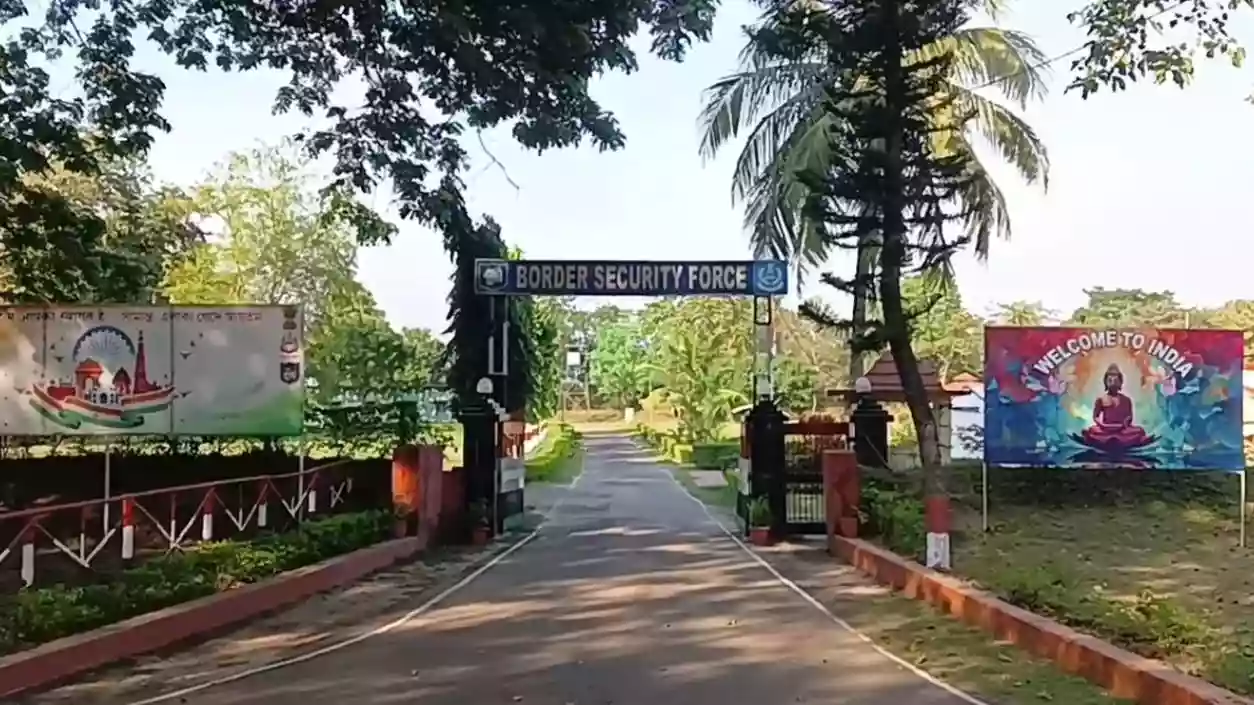No more bus racing, overtaking in Kolkata! new tracking technology introduced
.gif)
.gif)

Tensions between Bangladesh and India have escalated following the arrest of Chinmoy Nanda, the leader of the International Society for Krishna Consciousness (ISKCON) in Bangladesh. The arrest, which has drawn widespread protests, has caused disruptions at the Gede land border, a key crossing point between the two nations. Travelers, primarily those seeking medical treatment or business opportunities, are experiencing significant delays due to heightened security and reduced border operations.
Protests erupted in Bangladesh, with Hindu devotees demanding the immediate release of Nanda. In India, the arrest has sparked a political response, particularly from the Bharatiya Janata Party (BJP). In Kolkata, the BJP organized a protest outside the Bangladeshi consulate, calling for Nanda's release. West Bengal's opposition leader, Shuvendu Adhikari, threatened to halt all trade and travel between India and Bangladesh if the leader is not freed. Adhikari further urged the Indian government to impose restrictions on passports and visas for Bangladeshis if the situation is not resolved.
The Gede land border, which typically facilitates the movement of thousands of people each day between India and Bangladesh, has seen a dramatic decrease in traffic since the protests began. Previously, the border handled significant cross-border movement for medical treatments, business, and tourism. However, as a result of the protests and heightened political tensions, the number of people crossing the border has sharply declined, with only a handful of individuals traveling for urgent medical purposes or already holding approved visas.
The reduction in cross-border movement has also affected businesses that rely on this daily flow. Foreign exchange operations at the border, which support many local families, have seen a sharp decline in transactions. Currency exchange workers, such as Gautam Nath, have expressed concern about the financial impact on border businesses, as many rely on the flow of cross-border traffic to support their livelihoods.
In addition to the economic disruptions, the political instability in Bangladesh has added to the uncertainty. The country's interim government is facing criticism for its handling of the arrest and the growing unrest. Calls for early elections have intensified, with many citizens voicing frustration over the political situation. The unrest has become a focal point of protests, particularly among those who oppose the interim government's actions, and demands for Nanda's release have become central to the protests.
The situation at the Gede border has further complicated daily life for residents of both countries who regularly cross for medical, business, or family reasons. The ongoing disruptions at the border have raised concerns about the long-term implications for trade, travel, and diplomatic relations between Bangladesh and India. Both countries now face a critical period of instability, with ongoing protests, political responses, and a disrupted border environment continuing to shape the relationship between the two nations.